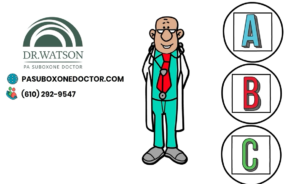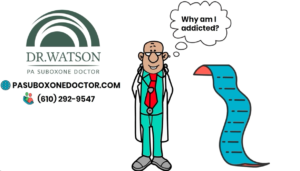Overcoming Stigma: The Role of Medication-Assisted Treatment in Fighting Opioid Addiction
Opioid addiction has reached epidemic proportions, affecting individuals and communities across the country. The impact of addiction is devastating, and it is crucial to address this issue with compassion and effective treatment options. In the fight against opioid addiction, medication-assisted treatment (MAT) has emerged as a powerful tool to help individuals overcome their dependency and reclaim their lives. In this blog post, we will explore the role of MAT in overcoming stigma and its effectiveness in combating opioid addiction.
Understanding Opioid Addiction and Stigma
Opioid addiction is a complex condition that affects both the body and mind
It often stems from the misuse or dependence on prescription painkillers or illegal opioids like heroin. The effects of addiction can be profound, leading to severe health issues, strained relationships, and a decline in overall well-being. Unfortunately, individuals struggling with opioid addiction also face the burden of societal stigma. The prevailing misconceptions and judgments surrounding addiction can prevent individuals from seeking the help they desperately need.
What is Medication-Assisted Treatment (MAT)
Medication-Assisted Treatment (MAT)
is a comprehensive approach that combines FDA-approved medications with counseling and behavioral therapies to treat opioid addiction. Two commonly used medications in MAT are Suboxone and Sublocade. Suboxone is a combination of buprenorphine and naloxone, which helps reduce cravings and withdrawal symptoms. Sublocade is an extended-release buprenorphine injection that provides consistent medication levels over time.
MAT addresses the physical and psychological aspects of addiction by stabilizing brain chemistry, reducing cravings, and blocking the euphoric effects of opioids. This approach allows individuals to focus on their recovery journey, engage in counseling, and make positive lifestyle changes.
The Effectiveness of MAT in Combating Opioid Addiction
Numerous studies have demonstrated the effectiveness of MAT
in treating opioid addiction. Compared to other treatment approaches, MAT has shown higher success rates in reducing opioid use, preventing relapse, and improving overall quality of life. The combination of medication and counseling provides a comprehensive and personalized approach to address the unique needs of each individual. Testimonials from individuals who have benefitted from MAT further reinforce its effectiveness as a treatment option for opioid addiction.
Dispelling Myths and Misconceptions about MAT
Despite the evidence supporting MAT
there are still myths and misconceptions surrounding its use. One common misconception is that MAT simply replaces one addiction with another. However, it is important to understand that MAT medications are carefully prescribed and monitored by healthcare professionals. These medications help individuals stabilize their lives, reduce harmful behaviors, and work towards sustainable recovery.
MAT is also a legal and safe treatment option
The medications used in MAT have undergone rigorous testing and are approved by the FDA. They are administered under medical supervision, and the dosage is carefully monitored to ensure safety and effectiveness. It is crucial to dispel these myths and provide accurate information to encourage individuals to consider MAT as a viable treatment option.
The Role of MAT in Overcoming Stigma
MAT plays a vital role in overcoming the stigma associated with opioid addiction
By treating addiction as a chronic medical condition rather than a moral failing, MAT helps normalize the concept of seeking treatment for addiction. It breaks the cycle of addiction by addressing the underlying physical and psychological aspects, empowering individuals to regain control of their lives. MAT serves as a bridge to recovery, providing stability and support while individuals work on rebuilding their lives.
Success stories of individuals who have overcome stigma through MAT highlight the transformative impact it can have. These stories emphasize that addiction is a treatable condition and that recovery is possible with the right support and treatment approach.
Support and Resources for Individuals Seeking MAT
If you or someone you know is struggling with opioid addiction and considering MAT
it is essential to seek support from reputable treatment centers like PA Suboxone Doctor. These specialized centers have experienced healthcare professionals who can guide individuals through the process of starting MAT, providing the necessary medical support and counseling services.
Additionally, there are several resources available to support individuals undergoing MAT. Support groups, counseling services, and helplines offer valuable assistance during the recovery journey. The combination of MAT and holistic support can significantly improve outcomes and help individuals maintain long-term recovery.
Addressing Barriers to MAT Access and Advocacy
Despite the effectiveness of MAT
there are barriers that prevent individuals from accessing this life-changing treatment. Limited availability of treatment centers, insurance coverage issues, and social stigma are some of the challenges that need to be addressed. Efforts are being made to increase access to MAT by expanding treatment options, advocating for policy changes, and promoting awareness and acceptance of MAT as a legitimate treatment approach.

Millions of Americans suffer from having mental and substance use disorders.



Conclusion
Medication-Assisted Treatment (MAT) is a crucial tool in the fight against opioid addiction. By addressing the physical and psychological aspects of addiction, MAT helps individuals overcome their dependency and break free from the stigma surrounding addiction. It offers a comprehensive approach that combines FDA-approved medications with counseling and support services, empowering individuals to reclaim their lives. It is essential to spread awareness, dispel myths, and advocate for increased access to MAT to ensure that individuals struggling with opioid addiction receive the help they need. Together, we can overcome stigma and build a future where everyone has access to effective treatment options.
Frequently Asked Questions
What is Medication-Assisted Treatment (MAT)?
Medication-Assisted Treatment (MAT) is a comprehensive approach that combines FDA-approved medications with counseling and behavioral therapies to treat opioid addiction. It helps individuals overcome their dependency on opioids by stabilizing brain chemistry, reducing cravings, and blocking the euphoric effects of opioids.
How effective is MAT in treating opioid addiction?
Numerous studies have shown that MAT is highly effective in treating opioid addiction. Compared to other treatment approaches, MAT has demonstrated higher success rates in reducing opioid use, preventing relapse, and improving overall quality of life.
Are MAT medications addictive?
MAT medications, such as Suboxone and Sublocade, are carefully prescribed and monitored by healthcare professionals. While these medications contain opioids, they are formulated in a way that minimizes the risk of misuse and addiction when taken as directed under medical supervision.
Does MAT replace one addiction with another?
No, MAT does not replace one addiction with another. Instead, it helps individuals stabilize their lives, reduce harmful behaviors, and work towards sustainable recovery. MAT medications are used as part of a comprehensive treatment plan that includes counseling and support services.
Can MAT be used for long-term treatment?
MAT can be used for both short-term and long-term treatment, depending on the individual’s needs. Some individuals may require longer-term maintenance treatment, while others may gradually taper off the medication under medical supervision. The duration of MAT is determined on a case-by-case basis.
How can I access MAT services?
To access MAT services, it is recommended to reach out to reputable treatment centers like PA Suboxone Doctor. These centers have experienced healthcare professionals who can guide you through the process of starting MAT, provide medical support, and connect you with counseling services.
What support and resources are available for individuals undergoing MAT?
There are several resources available to support individuals undergoing MAT. Support groups, counseling services, helplines, and online forums provide valuable assistance during the recovery journey. These resources offer a supportive community, guidance, and additional tools for maintaining long-term recovery.








